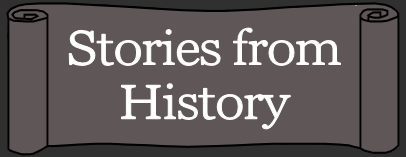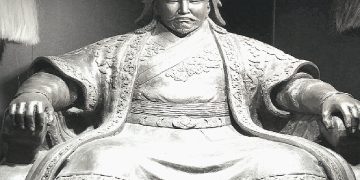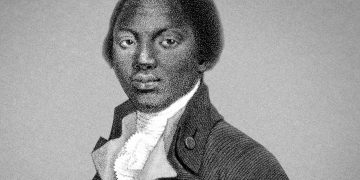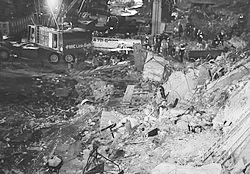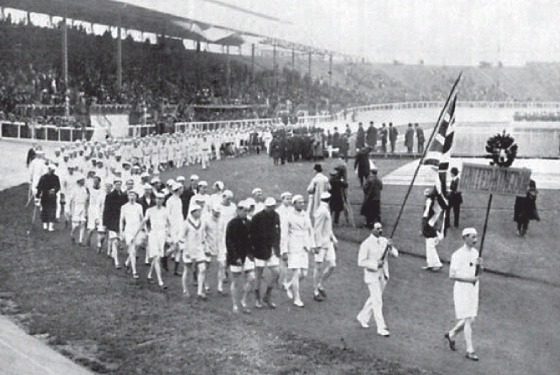Crazy XX century. Perhaps the most eventful century, so I decided to break the chronology of the 20th century into two parts. Between 1900 and 1950, the world shuddered from world wars and revolutions that claimed the lives of tens of millions of people. The assassination of Archduke Ferdinand in Sarajevo served as a formal occasion to the First World War, although the great powers simply suffered to measure their strength and chop off tidbits from each other’s colonies. During the war, revolutions took place first in Russia, where power passed to the Bolsheviks and a communist regime was established, and then in Germany, which led to the creation of the Weimar Republic. The League of Nations and the USSR were created, in Italy Mussolini came to power. The thirties of the XX century are characterized by the global economic crisis. At this time, the fascist party led by Hitler seized power in Germany. The Second World War began as a result of which Germany suffered a crushing defeat. The United States dropped two atomic bombs on Japan. The confrontation between the two superpowers of the USA and the USSR called the Cold War, began. At the end of the first half of the 20th century, the Communist Party led by Mao Zedong came to power in China. The chronology of these, as well as other events of the first half of the 20th century, is presented below.
1904 Creation of the Entente – military alliance of France and England
1904-1905 Russian-Japanese war. The defeat of Russia. Portsmouth World
1905-1907 The revolution in the Russian Empire. Bloody Sunday
1906 First State Duma of the Russian Empire
1907 Accession of Russia to the Entente
1908-1909 Bosnian crisis
1908-1946 Third Bulgarian Kingdom
1910 Korea came under Japanese control
1910-1926 First Portuguese Republic
1911-1912 Italo-Turkish War (“Libyan War”). Lausanne Treaty
1911-1912 Wuhan rebellion. The overthrow of the Qing Dynasty. Declaration of Independence of Outer Mongolia. Proclamation of the Republic of China
1912-1913 The first Balkan war of the Balkan Union (Bulgaria, Greece, Serbia, Montenegro) against the Ottoman Empire. London Peace Treaty
1913 The Second Balkan War – the partition of Macedonia between Bulgaria on the one hand and Montenegro, Serbia, Greece – on the other
1914-1918 World War I. Entente against the bloc of the Central Powers. The assassination of Archduke Ferdinand in Sarajevo. Battles on the Marne, at Ypres, on the Somme, near Verdun, Brusilovsky breakthrough. Jutland Naval Battle
1915 Entry into the Italian war on the side of the Entente
1917 February Revolution in Russia. Abdication of the throne of Nicholas II. Constituent Assembly. Proclamation of a republic in Russia. October revolution in Russia. II All-Russian Congress of Soviets of Workers ‘and Soldiers’ Deputies. US entry into World War I on the side of the Entente
1917-1923 The civil war in Russia and foreign military intervention. The formation of independent states in Russia and Eastern Europe
1918 Brest peace between Germany and Soviet Russia
1918-1919 The revolution in Germany and the creation of the Weimar Republic
1919-1920 Paris Peace Conference. Treaty of Versailles between Germany and the Entente. Peace treaties between Germany (Versailles), Austria (Saint-Germain), Bulgaria (Neyisky), Hungary (Trianon), Turkey (Sevres) and Entente countries
1919-1946 The League of nations
1922 Genoese Conference. The Rapallo Treaty (between the RSFSR and Germany) – the end of the international diplomatic isolation of the RSFSR. Great Britain canceled the protectorate over Egypt, recognizing it as an independent state. I All-Union Congress of Soviets. The formation of the USSR. The rise to power in Italy of the fascist party led by Benitto Mussolini
1923 Proclamation of the Turkish Republic. The government led by Mustafa Kemal Ataturk and his reforms. Hamburg uprising in Germany. Krakow uprising in Poland. Fascist “beer coup” in Munich, led by General Erich Ludendorff and Adolf Hitler
1924 Creation of the Mongolian People’s Republic
1925. In Geneva, 37 states signed the Protocol banning the use in the war of toxic, asphyxiating and other similar gases and biological agents.
1927-1928 Kuomintang coup in China. Shanghai massacre. The coming to power of Chiang Kai-shek
1928. 15 states signed the Paris Pact (Briand-Kellogg Pact) – a treaty on renunciation of war as an instrument of national policy
1929 Soviet-Chinese armed conflict. Khabarovsk Protocol
1929-1939 World economic crisis (“The Great Depression”). Black Thursday
1930. Civil disobedience movement in India. “Salt Camp” led by Mahatma Gandhi
1931 The overthrow of the Spanish monarchy. Establishment of the Second Republic
1931-1932 Mukden incident. The seizure by Japan of the northeastern territories of China (Manchuria). The proclamation of the state of Manzhou-Guo, led by Emperor Pu-Yi
1932-1933 Mass famine in the USSR: in Ukraine, Belarus, the North Caucasus, the Volga region, the South Urals, Western Siberia, Kazakhstan
1932-1935 Geneva Disarmament Conference of 63 Countries
1933-1934 The coming to power in Germany of Adolf Hitler. Arson of the Reichstag. NSDAP declared the only party in Germany
1934 USSR joined the League of Nations
1935-1936 The second Italo-Ethiopian war. Italy annexed Ethiopia. Italian East Africa
1936 Anti-Comintern Pact – an international treaty between Germany and Japan to fight the world communist movement
1936-1939 Military rebellion led by F. Franco. Spanish Civil War
1937 Accession to the Anti-Comintern Pact of Italy
1937-1945 Sino-Japanese War
1938. Military conflict between the USSR and Japan. Anschluss (annexation) of Austria by Germany. The Munich Agreement between Great Britain, France, Germany, and Italy on the transfer by Czechoslovakia of Germany to the Sudetenland. Kristallnacht – mass Jewish pogroms in Germany
1939 Italy occupied Albania. Armed conflict at the Khalkhin Gol River (Mongolia) between the USSR and Japan. Steel Pact (German-Italian treaty of alliance and friendship). Molotov-Ribbentrop Pact (Non-Aggression Treaty between Germany and the Soviet Union) on the division of spheres of influence. Nazi Germany attack on Poland. The beginning of World War II. The division of the territory of Poland between Germany and the USSR. Joining of Western Ukraine and Western Belarus to the USSR.
1939-1940 Soviet-Finnish War. Exclusion of the USSR from the League of Nations
1939-1945 The Second World War. The anti-Hitler coalition against the countries of the Nazi bloc
1940. The accession of the Baltic countries (Lithuania, Latvia, Estonia), Bessarabia to the USSR
1940-1941 German occupation of Denmark, Norway, France, Greece, Crete, Yugoslavia
1941. Neutrality Pact between the USSR and Japan. The German attack on the USSR on June 22 (“Barbarossa” plan). The battle of Smolensk, the siege of Leningrad, the battle for Kiev, Odessa, the defense of Sevastopol, the battle for Moscow.
The “Atlantic Charter” between the United States and Great Britain.
British and Soviet troops occupy Iran
12/07/1941 Japanese aircraft attacked Pearl Harbor, the main US naval base in the Pacific Ocean. The US entered the war with Japan and Germany
05/08/1942 The battle in the Coral Sea between the troops of Japan and the allied forces of the USA and Australia (the first clash of aircraft carrier groups)
1942 Battle of Midway Atoll on June 4. Japan’s loss of initiative in the Pacific
July 1942 – January 1943 Stalingrad operation. The beginning of a radical change in the Second World War in favor of the anti-Hitler coalition
October – November 1942 Battle of El Alamein. The defeat by British troops of the North African igloo-German group General Rommel. Fracture in the battles for Africa
July 1943 Kursk operation
July – September 1943. Mussolini removed from power. Dissolution of the fascist party. Italy’s way out of the war. The landing of the Anglo-American troops in Italy. German occupation of Italy
October 1943. Tehran Conference of the Heads of the Three Allied States – USSR, UK, USA
1944 Battle of Monte Cassino, operation of the Anglo-American forces in Italy against the German army
06/06 – 08/31/1944 Allied landing in Normandy and the opening of a second front (Operation Overlord)
February 4 – February 11, 1945, The Yalta Conference of the Allied Powers on the Post-World Peace Organization
April 16 – May 08, 1945, The capture of Berlin. Capitulation of Germany
04/25 – 06/26/1945 San Francisco Conference. UN creation
07/17 – 08/02/1945. Potsdam conference of the three states of the anti-Hitler coalition (USSR, USA, Great Britain)
08/06/09. 1945 Atomic bombing of Hiroshima and Nagasaki
08/09/1945 the USSR declared war on Japan
09/02/1945 The surrender of Japan. The end of World War II. Establishment of the Democratic Republic of Vietnam
11/20/1945 – 10/01/1946 Nuremberg trials – the international trial of former leaders of Nazi Germany
1945-1954 Indochina war, which ended with the division of Vietnam into two independent states: the Democratic Republic of Vietnam (capital – Hanoi) and the Republic of Vietnam (capital – Saigon)
03/05/1946 Speech by W. Churchill in Fulton (USA). The beginning of the cold war
1946. Proclamation of a republic in Italy. Paris Peace Conference Following WWII
1947 Marshall (US Secretary of State) Plan for the Post-War Restoration of Europe. Division of the territory of British India into the Indian Union and the Dominion of Pakistan and the provision of independence to them
November 29, 1947. The UN adopted a plan for dividing Palestine into two states – Arab and Jewish
1947-1949 Arab-Israeli war
01/30/1948 Murder in Delhi M. Gandhi
05/14/1948 The establishment of the state of Israel is proclaimed
1948 Proclamation of the Republic of Korea (south of the Korean Peninsula) and the People’s Democratic Republic of Korea (north)
1948-1949 The first Berlin crisis. Establishment of an enclave of West Berlin, the Federal Republic of Germany and the German Democratic Republic
1949 The Council of Europe is established. Four Geneva Conventions for the Protection of War Victims have been signed. Creation of the North Atlantic Treaty Organization – NATO (USA, Canada, Iceland, Great Britain, France, Belgium, Netherlands, Luxembourg, Norway, Denmark, Italy, and Portugal)
10/01/1949 The People’s Republic of China was created (the capital is Beijing). Prime Minister – Mao Zedong
